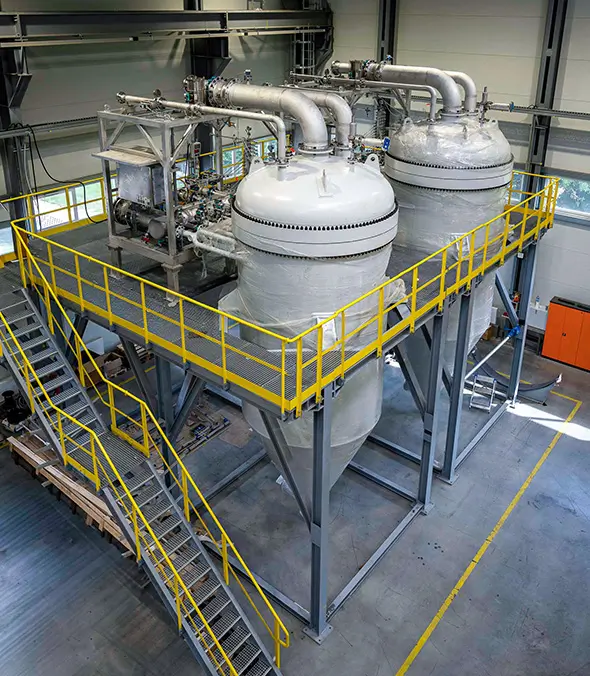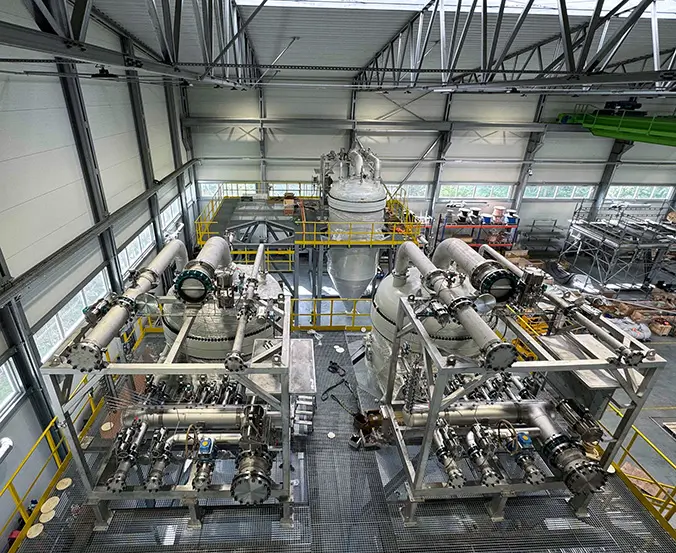Filtration in Carbon Capture: Why It Matters
Carbon Capture, Utilization, and Storage (CCUS) is becoming a central tool in the global energy transition. More than 50 million tonnes of CO₂ are captured annually today, and global capacity is expected to grow to over 430 million tonnes per year by 2030.
To meet climate targets, capacity will need to increase more than tenfold. This makes reliability and cost efficiency in every part of the process, including filtration, more important than ever.
Why is Filtration Important in Carbon Capture?
Both post-combustion capture and Direct Air Capture (DAC) rely on amine or alkaline solvents to absorb CO₂. Over time, these solvents accumulate salts and particulate matter that:
- Shorten solvent lifetime
- Increase operating costs
- Cause fouling, plugging, and downtime
Without effective solid-liquid separation, carbon capture systems cannot scale reliably.

Which Filters are Used in CCS and DAC?
DrM’s CONTIBAC® and FUNDABAC® filters are widely applied in carbon capture and gas sweetening. With more than 80 installations worldwide, they are proven in both pilot and full-scale plants.
- High solids capture with clear filtrate, suitable for clarification and thickening
- Back-washable filter elements, regenerate in place, restoring flow rates without replacement
- Continuous or semi-continuous operation, uninterrupted processing with automatic solids discharge
- Fully enclosed, closed-system design for safe and reliable operation
- Flexible integration across applications, from slurries to solvent purification
- Precoat and body feed options for challenging separations
- Uniform cake adherence ensures efficient drying and discharge
- Patented heel volume filtration minimizes solvent and product losses
- Optional cake washing for high solids purity and improved recovery
- Exceptionally low operating and maintenance costs

For further information visit: drmgroup.com
News Categories
- » NEWS HOME
- » Automation & Robotics
- » Industry 4.0
- » Material Handling
- » Sensors
- » Quality & Testing
- » Machine Vision
- » Laser & Optics
- » Metalworking
- » Motion Control & Drives
- » Hydraulics & Pneumatics
- » Process Industry
- » Renewable Energy
- » Agriculture
- » Home & Office Furniture
- » Additive Manufacturing
- » Environmental Tech









